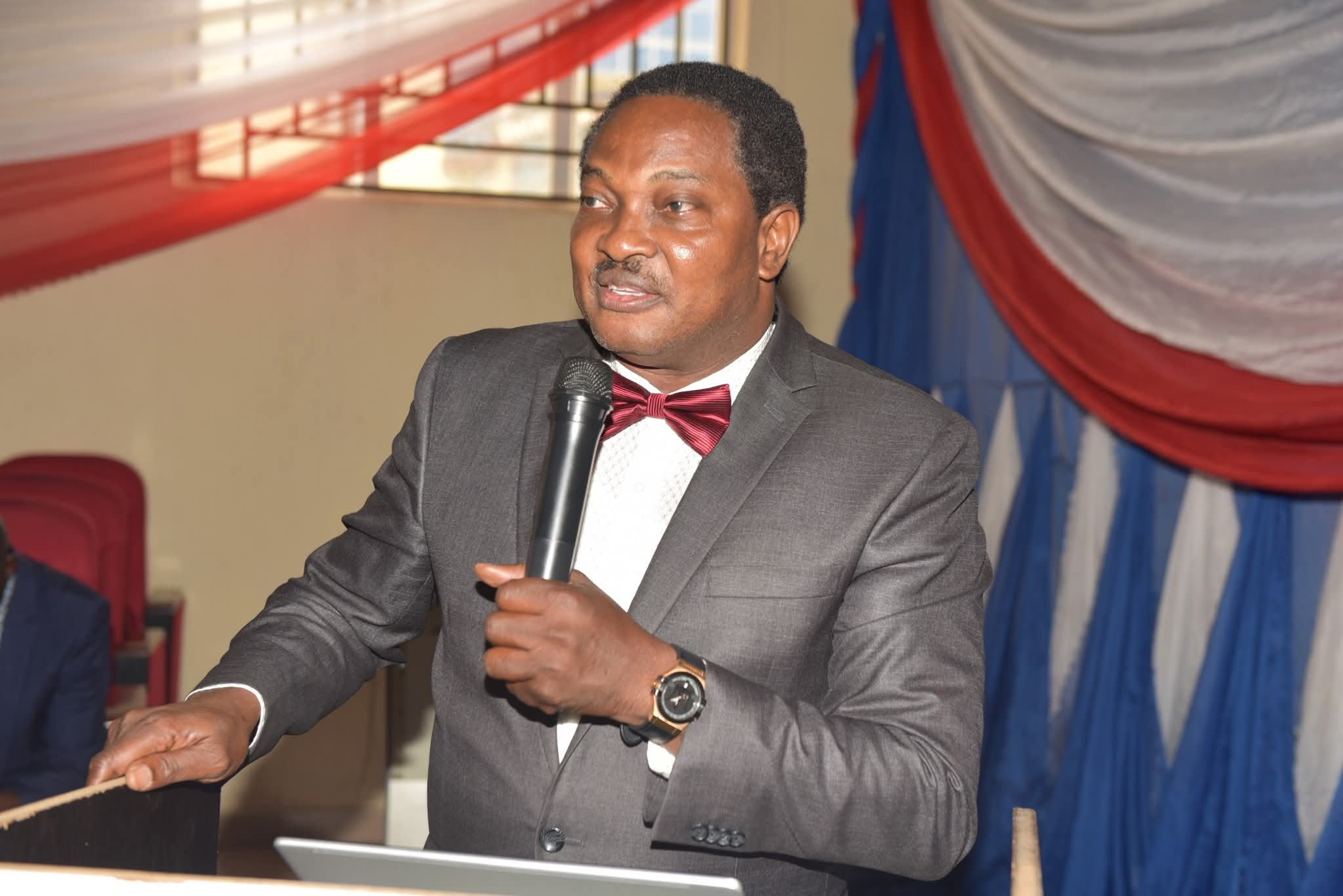
Bingham University’s Faculty Of Administration Holds Second International Conference.
Published on: Oct 30th, 2025
Bingham University’s Faculty of Administration recently held its 2nd International Conference, themed “Emerging Issues in Knowledge Diversification and Sustainable Development in Management Sciences,” attracted scholars, researchers, students, and guests from within and outside Nigeria including the Guest Speaker, Prof. Adebayo Paul Adejola and the Lead Paper Presenter, Dr. Malgit Amos Akims from Rwanda.
Vice-Chancellor Prof Haruna Kuje Ayuba, in his opening remarks, commended the Faculty of Administration for sustaining the international conference tradition, noting that the event reflects the university’s commitment to academic excellence and intellectual exchange.
Addressing the theme, Prof. Ayuba emphasized the importance of knowledge diversification over traditional knowledge centralization that has long characterized university education in Nigeria. He explained that over-specialization often leads to limited innovation and narrow perspectives, whereas knowledge diversification promotes multi-disciplinary collaboration, creativity, and adaptability in solving real-world problems.
“For far too long, universities have focused on knowledge specialization where experts in one field see no need for knowledge from another. That kind of thinking produces graduates with narrow focus and limited innovation,” he remarked.
“In a world of constant technological and market change, over-reliance on specialized knowledge can make one irrelevant. No one should think that because they study medicine, they cannot learn music or that an artist should not understand a bit of engineering.” Drawing from his personal academic journey, Prof. Ayuba narrated how he transitioned from traditional biogeography into climate science, despite initial skepticism from peers. He described the shift as an “evolution, not a departure,” and an essential adaptation for addressing environmental challenges through an interdisciplinary lens.
“I saw this shift not as abandoning my field but as broadening my understanding. Today, integrating climate science into biogeography has enabled me to contribute more meaningfully to environmental management and policy.” Prof Ayuba highlighted that the intersection of knowledge diversification and sustainable development calls for a holistic, inclusive, technology-driven, and ethically grounded approach to education and management practice.
Speaking earlier, the Dean, Faculty of Administration, Professor Orbunde Benjamin, in his welcome address, appreciated the Vice-Chancellor for providing the necessary support to organize the conference. He also expressed gratitude to the guest speakers and resource persons who travelled from various locations to attend the event. In addition, he commended the Local Organizing Committee (LOC) for their dedication and commitment to ensuring the success of the conference.
Delivering his keynote presentation, Prof. Adebayo Paul Adejola emphasized that “in today’s world, success is not determined by qualifications alone but by the value addition one brings to the table.” He spoke extensively on the power of knowledge diversification as a catalyst for sustainable development, calling on academics, professionals, and students to broaden their expertise beyond narrow specializations.
Prof Adejola stated that “Knowledge must be improved, challenged, and increased constantly or it vanishes,” he quoted from management thinker Peter Drucker. “Education,” he added, echoing Nelson Mandela, “remains the most powerful weapon with which to change the world.”
Prof. Adejola underscored the dangers of “information deficiency syndrome,” where individuals or institutions fail to adapt in a world brimming with resources and opportunities. Using examples from his academic and professional journey, he illustrated how interdisciplinary thinking and readiness to learn beyond one’s primary field can open global opportunities and drive innovation. Highlighting practical insights, he drew attention to the importance of: Integrating digital technologies, artificial intelligence, and data analytics into management sciences; embracing cross-disciplinary learning and global perspectives, balancing economic, social, and environmental sustainability in business decisions, recognizing that “diversified knowledge plus innovation is the pathway to sustainability.”
He shared inspiring anecdotes, including his experience setting up a forensic laboratory in Kaduna State, a project that emerged from his willingness to teach and apply knowledge in computer forensics, despite limited initial exposure to the field.
Prof. Adejola also addressed the global shift in management practice, emphasizing the transition from traditional models to data-driven, technology-enabled systems. He noted that Africa and Nigeria stand at a critical juncture, with the opportunity to harness youth potential, local wisdom, and technology to solve developmental challenges.
“Black is not synonymous with lack,” he remarked. “What makes the difference is the stuff you are made of. The colour of our skin may differ, but the colour of the brain is the same.”
Dr. Malgit Amos Akims the lead presenter presented on the topic “Public Expenditures and Economic Growth in Sub-Saharan Africa.” His study examined how government spending in key sectors influences economic growth across 58 countries between 2004 and 2024.
The research revealed that education expenditure is the only form of public spending that significantly drives economic growth in the region. Other areas such as health, defence, and debt servicing showed limited impact, likely due to inefficiencies and mismanagement.
Dr. Akims emphasized that prioritizing education is essential for building human capital, fostering innovation, and achieving sustainable development. He urged policymakers to align education outputs with labour market needs and to strengthen governance and accountability in public spending.
He concluded that meaningful economic transformation in Sub-Saharan Africa depends on how well governments invest in and manage the education sector, describing it as “the true foundation of sustainable growth.”
The conference ended with various presentations from resource persons and scholars and a group photograph.
........................................................................
Directorate of Public Affairs
Office of the Vice-Chancellor
Bingham University

